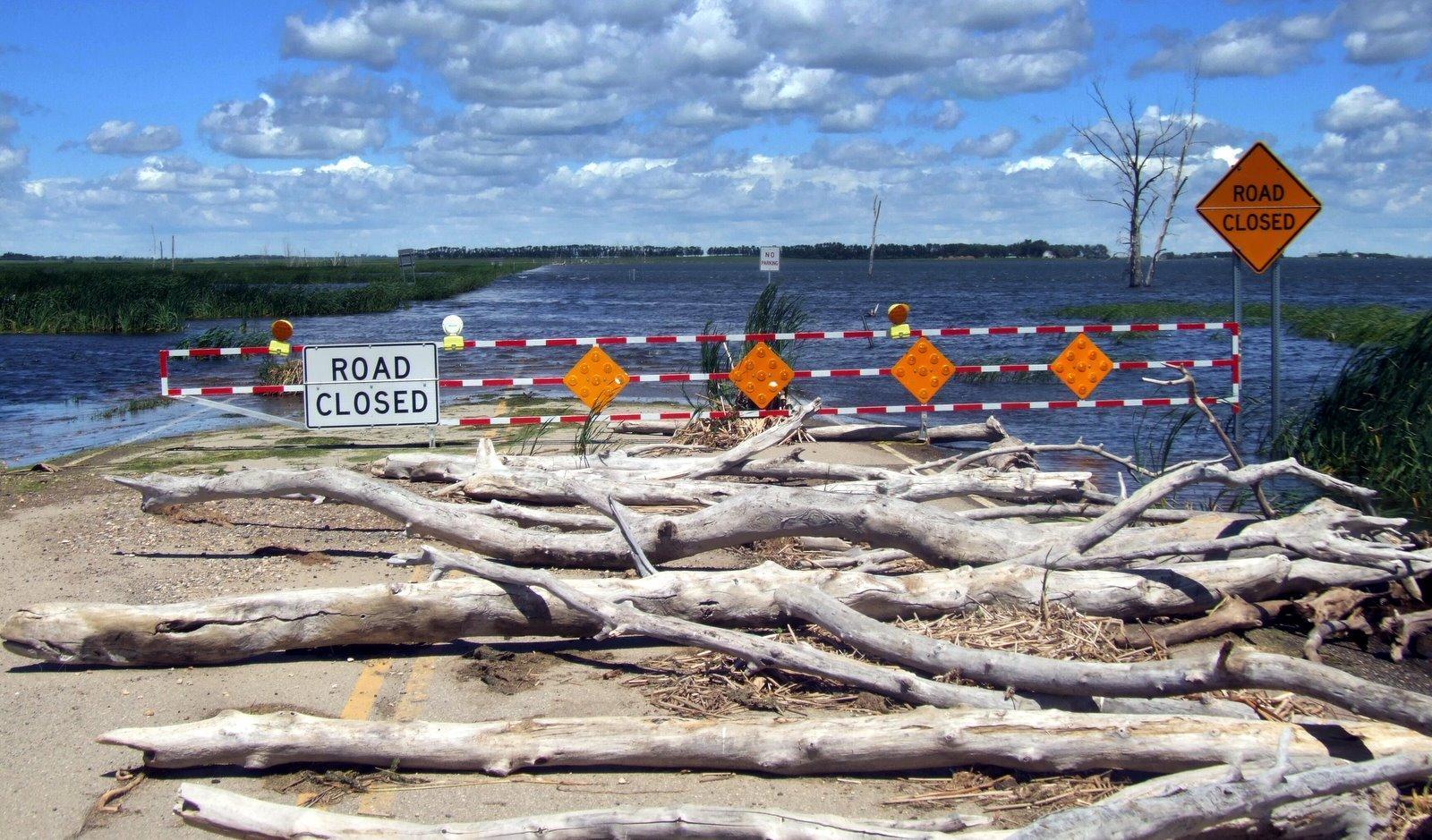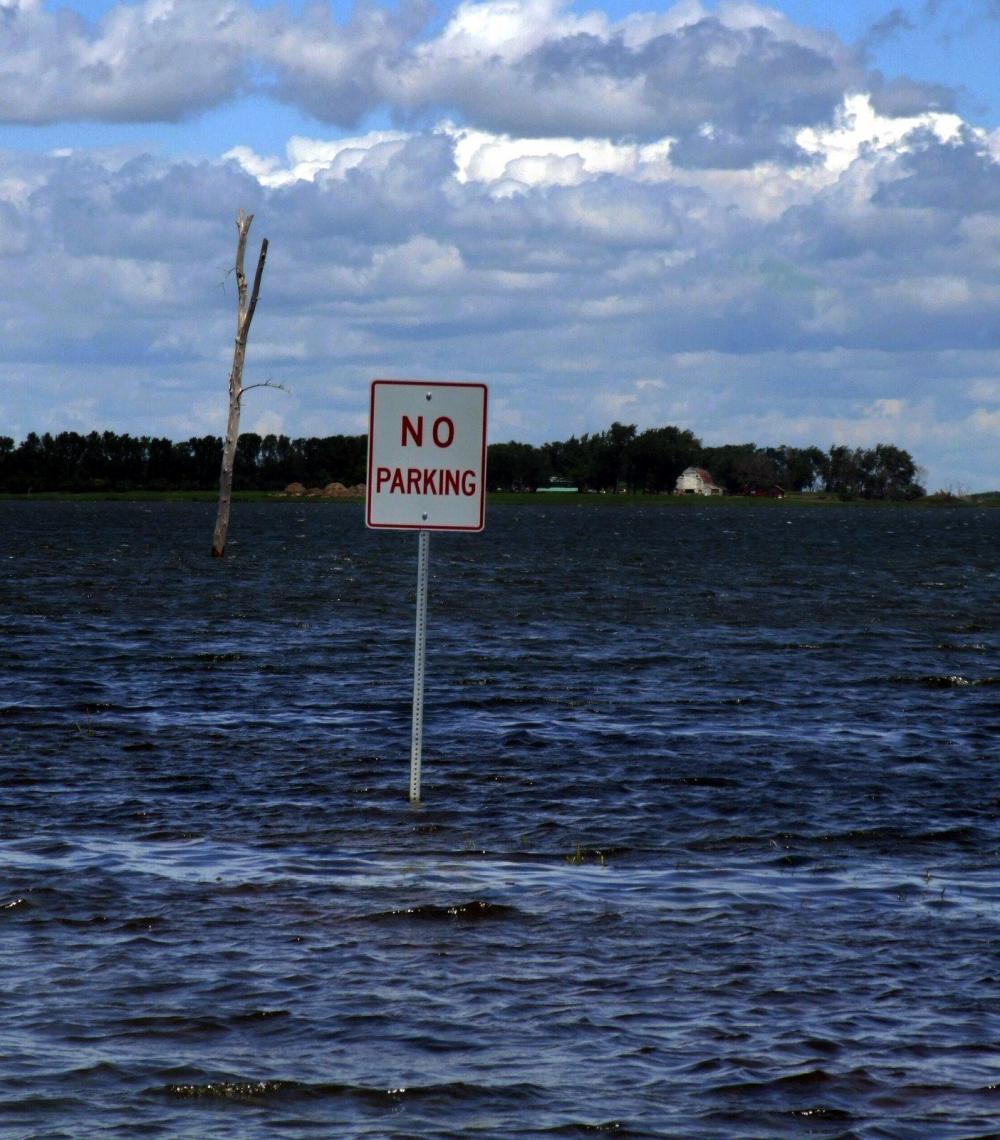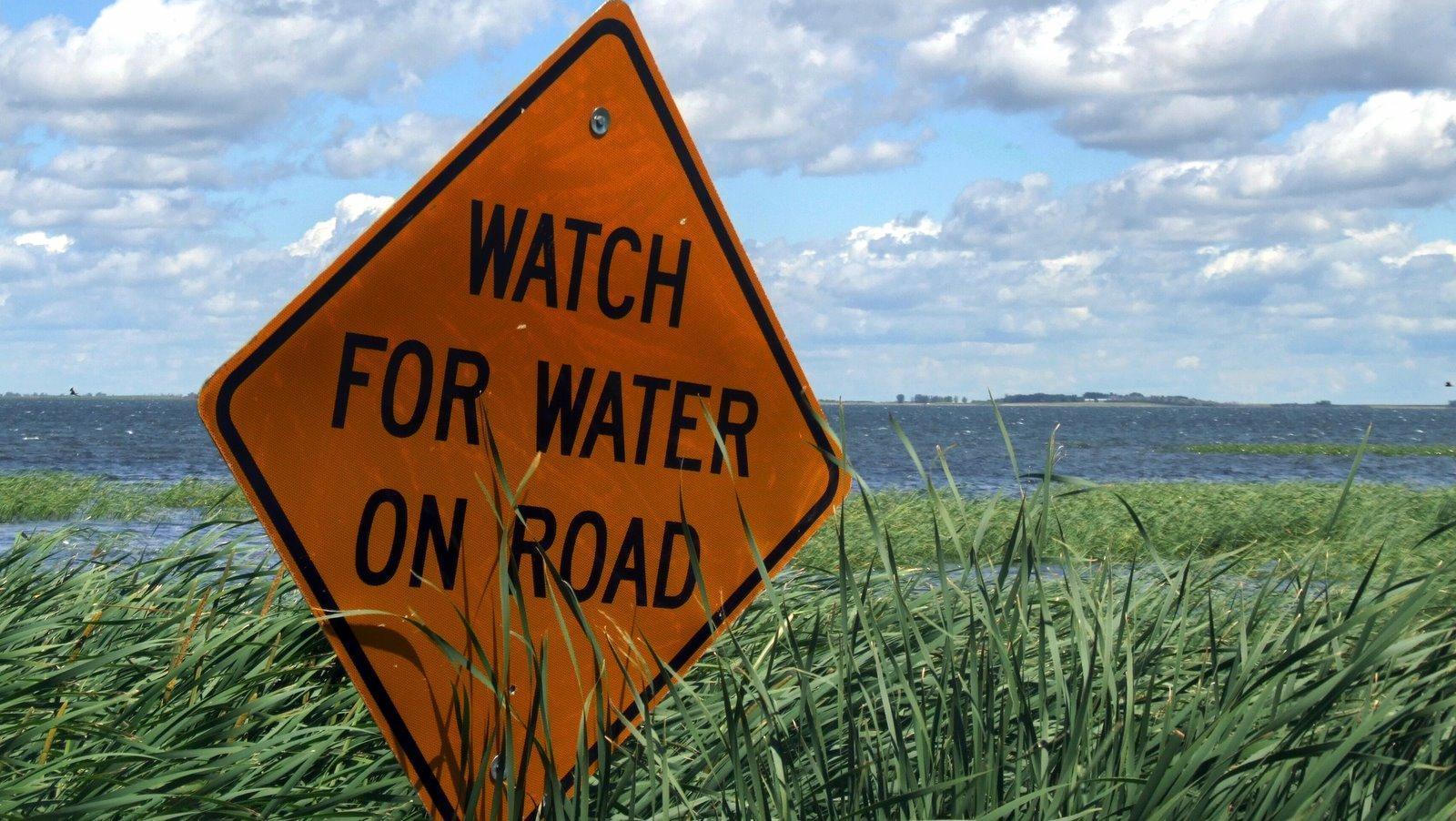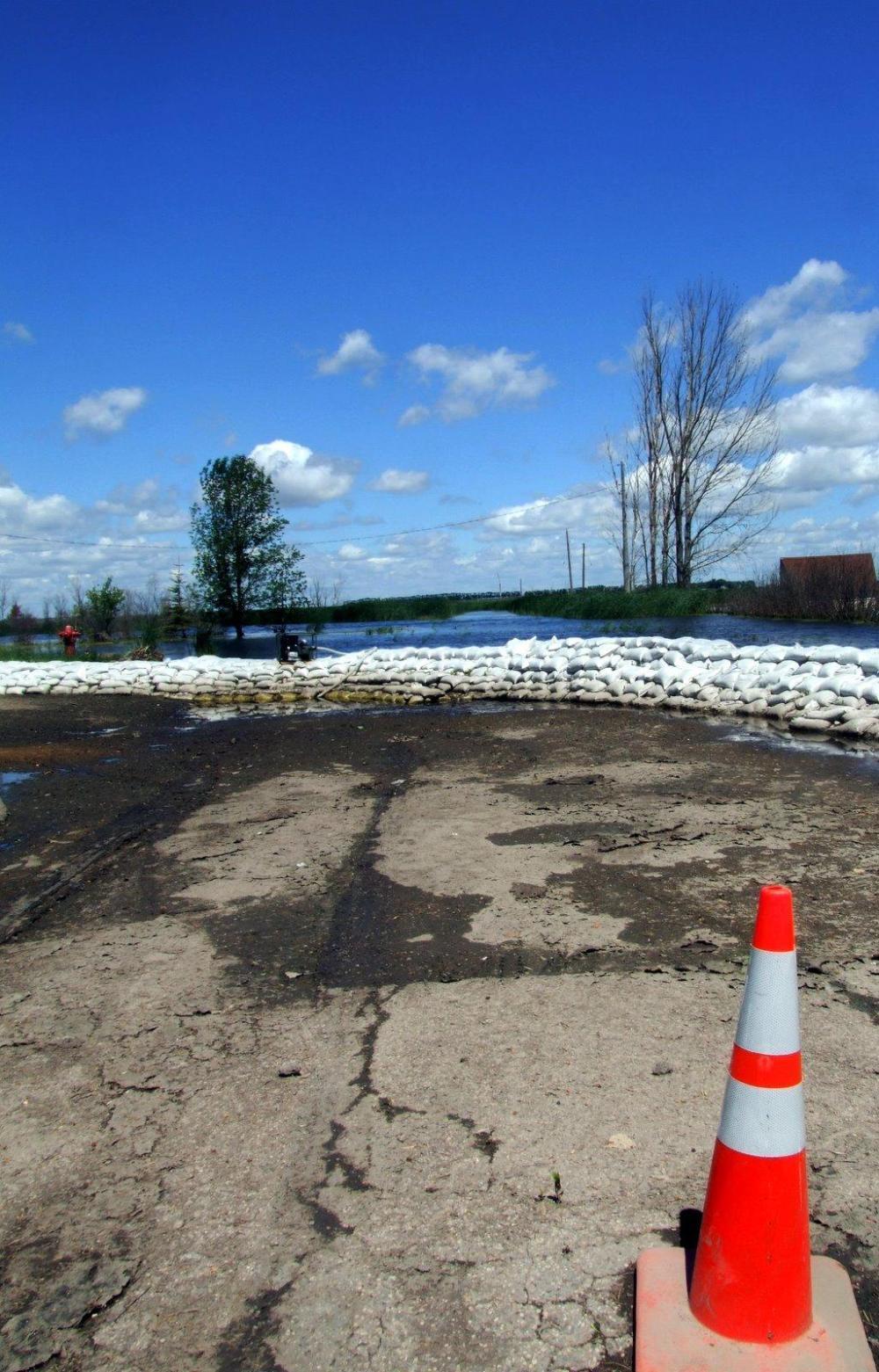June 26: Binford to Minnewaukan, North Dakota
PEKIN HAD a hand in our day today. But so, too, did two drunk Indians.
We left Binford in one of those mornings that seem never to have dawned. The cloud was heavy and it took only minutes before the first thunder rolled. I liked to think it would break the sleep of the inconsiderate boozers in the park's hired cabins who had drunk and gossiped into the early hours.
By Pekin, a village with one dead-end street, the rain was falling hard but the thunder had passed. A shame for the villagers because today was their annual Pekin Day.
We sploshed the length of the street in the hope of a coffee, even though our map said there was none. We were directed into the community centre "if you want to get out of the rain." We stated our true intentions and our new-found friend, a man of around 70 who never introduced himself, pushed open the door and demanded four white-haired women prepare coffee for us. They were, it has to be said, making coffee anyway, but in a way that required each ask of the others at intervals, "Now, what can I do, dear?"
In the park, men in waterproofs were putting up stands wrapped in grey polythene. An old bus stood ready to take visitors who looked like never coming. Paintings hung on walls in the art exhibition across the road. A woman hurried about like the White Rabbit, repeating "What a shame! What a shame!" before going on to say "What a shame!" somewhere else.
We asked why Pekin was called Pekin. Nobody knew. A tall, fair, smiling man called Rod said "Lot of odd names round here. We live down the way in a place called McVille."
We said we had seen signs for it.
"What sort of name is that?", he asked. "We live in a prefix and a suffix."
He told us the area was settled by Swedes in the late 1800s but that the region had really come to life when the railway arrived in 1906. "The railroad company acquired land and then sold it to create towns that would bring them trade. And the brochures they produced! Real lavish things singing the praises of the area. They'd point out that we're on the same latitude as Paris, France... which is true, but..."
He laughed.
I knew railway companies used a lot of Chinese workers - coolees - but we couldn't decide if that was then or later. Maybe a lot of Chinese had set up camp and someone had commented that it was "like Pekin down there." Since there was no other name for a town yet to be built, the name could have stuck.
"Could be," Rod said, unconvinced at my instant writing of history but determined to sound polite.
In the middle of all this, Don arrived, dripping. We had last met back in Monroeville, in Indiana, where he and his riding partner had fallen out and separated. Don had wandered into Pekin and been persuaded to spend the weekend and enjoy the show. Politeness demanded he stick about even though rain was spoiling everything.
Since Monroeville, he said, he had been riding shorter and shorter days, until he was now down to 30 miles. He had thought about riding in the Rockies, near Whitefish, but that idea had been dropped. His route trimmed of several days' riding, and having a ticket for a train home, he was trying to fill the yawning time ahead of him.
"I thought I might go into the casinos on the Indian reservations," he said. "Not to gamble: just to watch other people and spend some time."
We went on to the Sioux reservation ourselves, at Warwick, later today. We were once more in search of a drink. The reservation is sovereign territory, a self-governing enclave which stretches from Devil's Lake. Many people - including Adventure Cycling in its map directions - refer to it as Devil's Lake reservation. It seems insulting to get it wrong.

| Heart | 0 | Comment | 0 | Link |
The tone changed immediately as we entered the reservation. The roads were gravel, the buildings flat-roofed and spaced apart. Signs were hand-painted. This, we noticed, was consistent even on police stations and administrative buildings. There was a filling station with two pick-ups and two white men in cowboy hats. Across the road was a bar with a plain metal door and a grill across the single window. A neon sign for Budweiser and the word "open" were just visible beyond it.
We leaned our bikes against a black, tubular rail that in an earlier age could have served for hitching horses and stepped towards the door. We had barely reached the handle when it opened by itself, with some force, and an expressionless man seemed surprised there were two steps to street level. After him came a lively woman in trousers and sweater and painted toenails, carrying a pink drink in a plastic glass.
"Oh, hallo," she said. "I'm an Indian!"
Steph laughed.
"I think I worked that out," she said.
The woman looked serious.
"How's that?"
Steph pointed to her sweatshirt. "It says INDIAN. And your lovely skin tone, too."
The woman smiled, pleased.
"I never burn," she said, swirling her drink.
"I do," Steph said. She rolled back a leg of her shorts to show untanned skin beneath. The woman laughed. Her friend looked less certain, as though he was having trouble following.
"He's my cousin," the woman said. "My mother and his mother are sisters. And he's drunk. That's why I'm driving." She had trouble forming her words.
The man had even more difficulty. After the two had established where we were from, he said: "I've got a friend in Oshkosh." It may not have been Oshkosh but when you're that drunk everywhere sound like Oshkosh.
"What's in your glass?" Steph asked.
"Vodka and cranberry juice. It's good. You want some?"
Steph declined.
"I've got a bicycle to ride," she said, hoping irony would do the trick. It went unnoticed.
"Well, you met two Indians now, the woman said, slightly mysteriously - or perhaps as a statement of the obvious. She waved goodbye and they got into their car and drove down the street. Twenty minutes later they passed us on the highway with a lot of tooting and friendly waves through opened windows.
"Lovely people," Steph observed, "but I'm glad they're ahead and not behind us."
We are camping tonight in the park at Minnewaukan, a doomed town that will be under water in a few years. The village holds on but buildings lie empty and there is an air of dignified decay. The lake behind the
place used to be 12 miles away and only two feet deep. Now it laps at the edge of houses. Water flows in but there is no way out.
"So sad to think nothing of this will be here next year," a woman shouted from the window of her pick-up as we sat in the cool outside the store.
AMERICAN FLAGS SEEN: 28
| Rate this entry's writing | Heart | 3 |
| Comment on this entry | Comment | 0 |



